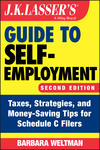Mortgage Relief for Some Homeowners
Homeowners caught in sub-prime lending may now be eligible for certain tax relief. Under the Mortgage Forgiveness Debt Relief Act of 2007, if they can work out a refinance that entails some debt forgiveness on the old mortgage, they won't be burdened with taxes that would ordinarily apply—they can escape tax on the income that results from the forgiveness.
Refinanced mortgages
Homeowners may be able to refinance their mortgages so they can stay in their homes. If the lender forgives any portion of the outstanding debt—something that is not uncommon when home values drop—this is treated as discharge of indebtedness income. Discharge of indebtedness income (also called cancellation of indebtedness income) is usually fully taxable. The new law provides a tax exemption for refinanced mortgages. This break is limited to:
- A taxpayer's primary residence. Vacation homes and homes bought purely for investment do not qualify.
- $2 million of acquisition indebtedness (forgiveness in excess of $2 million is taxable).
- Debt forgiven during tax years 2007, 2008, and 2009.
Of course, lenders are not required by the new law to make any debt forgiveness and some homeowners may refinance without it.
Any portion of debt forgiveness that is excluded from income must reduce the homeowner's basis in his or her residence. For example, if the original cost of the home was $450,000 and the lender forgives $25,000, the new basis of the home is $425,000 ($450,000−$25,000).
Breaks for other homeowners
On 2007 income tax returns, those who purchased homes in 2007 using primate mortgage insurance because they could not make a 20% down payment can deduct the premiums as interest if they itemize deductions. The new law extends the treatment of private mortgage insurance as deductible qualified residence interest for three years (through 2010).
Volunteer emergency responders who obtain state and local property tax rebates can treat part of the rebates or reductions as tax-free income. The tax-free amount is limited to $30 for every month of volunteer service during the year (maximum of $360 annually). Of course, these volunteers cannot claim a deduction for the portion of their tax bill that is rebated. This break becomes effective after December 31, 2007.
Widows and widowers who sell their principal residence within two years of the death of their spouse can claim the home sale exclusion up to $500,000 (instead of the usual $250,000 limit for unmarried persons). This break applies only to home sales after December 31, 2007.
Head of household
Generally, an unmarried person who maintains a household for dependents and is allowed to compute his or her tax based on head of household rates, which are more favorable than single person rates.



